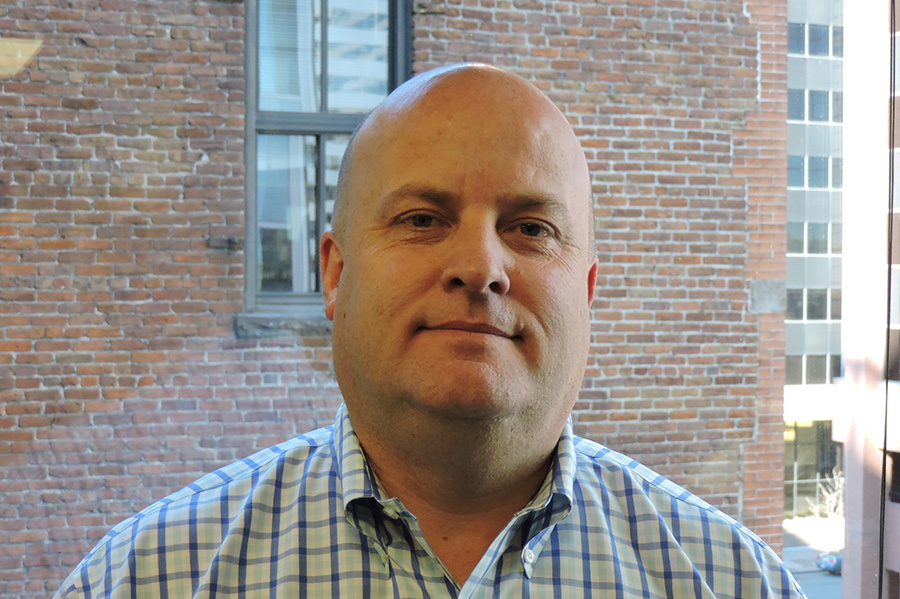Peter Everett first joined NextHealth Technologies as an early investor and board member. Then he became COO. Everett has since taken over as CEO of the analytics company that provides “personalization at scale.”
Prior to joining NextHealth, Everett founded and served as CEO of HealthConnect Systems, which offered cloud-based sales automation solutions and was sold to Ebix. Before HealthConnect, Everett spent a decade on Wall Street, including as a Principal at JPMorgan, advising mergers and acquisitions and providing capital raising services to technology startups.
Health Evolution spoke with Everett about why NextHealth considers itself to be in an analytics greenfield space, how the company differs from other analytics vendors, what he is most proud of as a CEO and serial entrepreneur, and more.
As an early investor in NextHealth, what inspired you to become part of the company and eventually take the CEO role?
Everett: When I originally became involved, I had just exited a previous company and I had some funds to put to work and was really looking for an opportunity to work with a team and have a meaningful ownership stake but not on a full-time basis. I wanted to be able to play a value-added board role, or what I call the utility infielder. I had previously started up a health care IT company called HealthConnect Systems and I just know how incredibly difficult it is to sit in the CEO’s seat. So, the founder of the company and CEO at the time, Eric Grossman, and I had gotten to know each other. He had been charged with putting together an analytics strategy for TriZetto and in that role he had a bird’s eye view because he was able to meet with a lot of C-suite clients, many competitors in the industry and he developed a viewpoint as to what the solution should be. As they were getting ready to go to market, TriZetto missed its earnings and financials. The CEO decided to cut back on new investments and armed with the strategy he had developed Eric recognized analytics as a great opportunity so he started NextHealth. I made a seed investment and served on the board for about six or seven years. Then about two years ago with our daughter heading off to college, my wife and I realized that we’ve been doing the same thing in the same place for a long time and we started rethinking our opportunities. NextHealth raised a Series B round and was looking for somebody to come in as the chief operating officer so we decided to go to Denver to spice things up so. Things progressed from there and Eric and I had a change of roles. He moved more into the founder role and I took over as the CEO.
Building on that, NextHealth describes its platform as enabling “precision at scale.” At first blush, the phrase appears to almost contradict itself. So what’s the concept?
Everett: If you look at the health care industry today, there’s still tremendous inefficiency. One area with tremendous inefficiency happens because health plan members engage in behavior X rather than behavior Y. Massive costs are incurred and sub optimal cost and quality outcomes result from that behavior. If you can impact those behaviors at scale, you can deliver better costs and quality outcomes for the members and the health plans, which is their mandate. From a societal and personal satisfaction perspective, you can make the health care system better. So precision at scale is focused on identifying areas with a lot of members engaging in behavior X that would be better for all, starting with the members, to move them to a different type of behavior. Then it becomes about engaging those members in a way where you can provide casual demonstration of that change’s impact, quantify its value and if you can do that there’s an awful lot of opportunity and improvement you can bring to health care.
Can you highlight a recent example?
Everett: Sure, a good example would be the work we did for the Medicare division of a large national health plan. It was seeing an alarming increase in costs from untreated behavioral health challenges. As we all know, a lot of behavioral health issues have been expanding quite significantly during the COVID-19 pandemic and the real shortage of behavioral health providers out there is only making it worse. That said, there’s a whole new wave of virtual providers that have stepped in such that the capacity of providers has increased similar to how Uber increased the capacity of taxi drivers. There’s a solution but it’s not worth anything unless you can get members to change behavior to activate and engage with those virtual providers. This same client had launched an effort to activate members into virtual behavioral health care. And they were not activating as many members as they wanted to. So, we came in and went through a process with them to take a hard look at how they were reaching out to members and help them come up with a number of suggestions to improve. That resulted in a 50 percent increase in activating members, and we’re not done yet.










